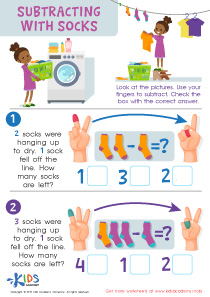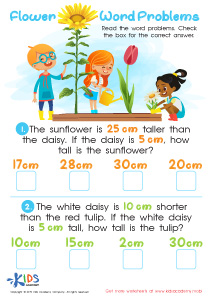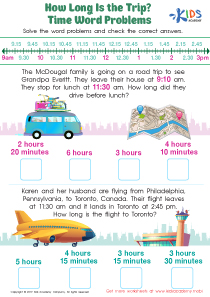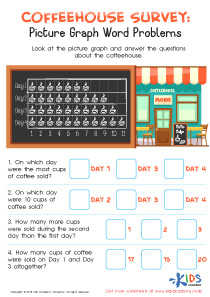Easy Two-step Word Problems Worksheets for Ages 3-5
5 filtered results
-
From - To
Introduce your little ones to the world of math with our Easy Two-step Word Problems worksheets, perfectly tailored for children aged 3-5 years. These school interactive worksheets are designed to engage young minds in a fun and educational way, helping them grasp basic problem-solving skills through simple, age-appropriate challenges. Each worksheet encourages interaction and thinking in two steps, making learning both exciting and rewarding. Ideal for both classroom and home use, these worksheets are a fantastic resource for developing early mathematical intuition and confidence. Start your child's journey to math proficiency with ease and joy!
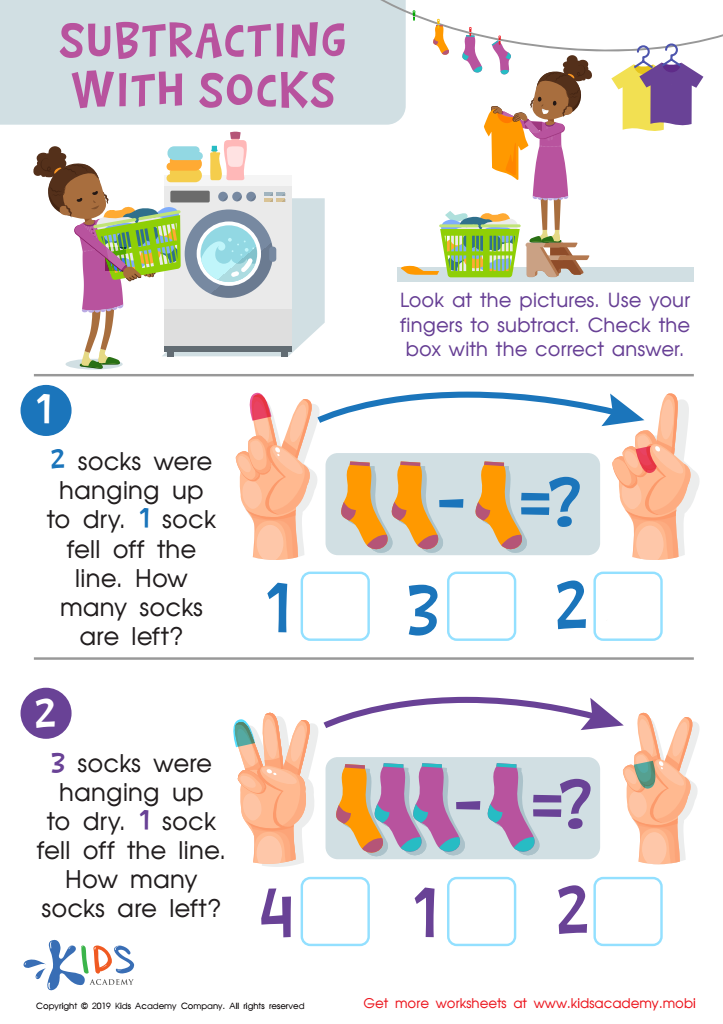

Subtracting Socks Worksheet
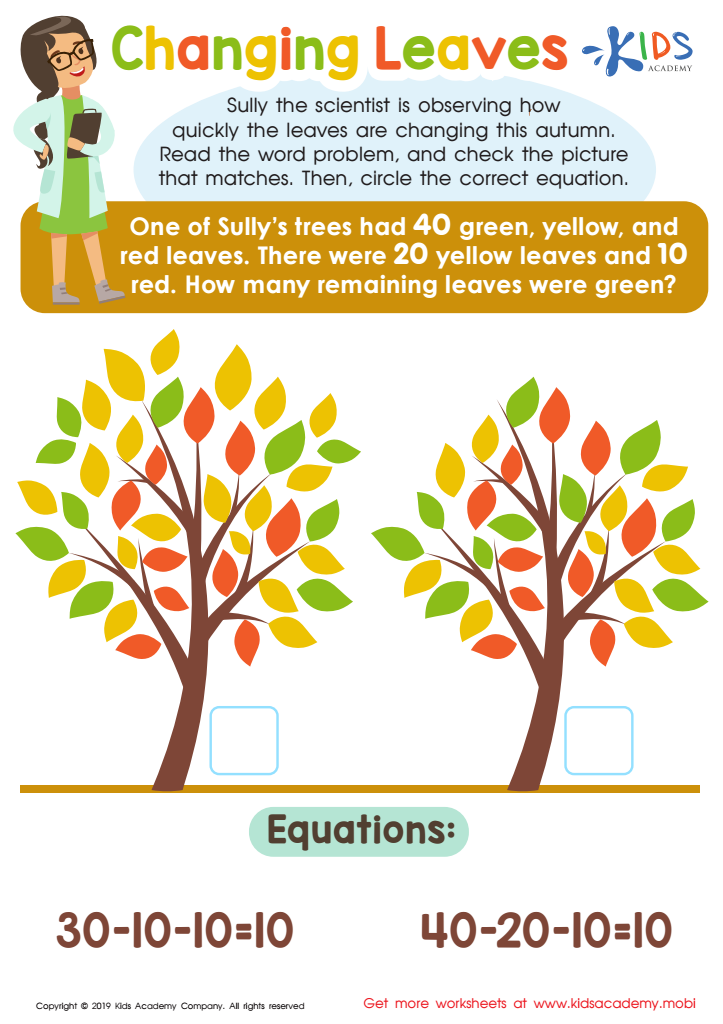

Changing Leaves Worksheet


Counting Seedlings Worksheet
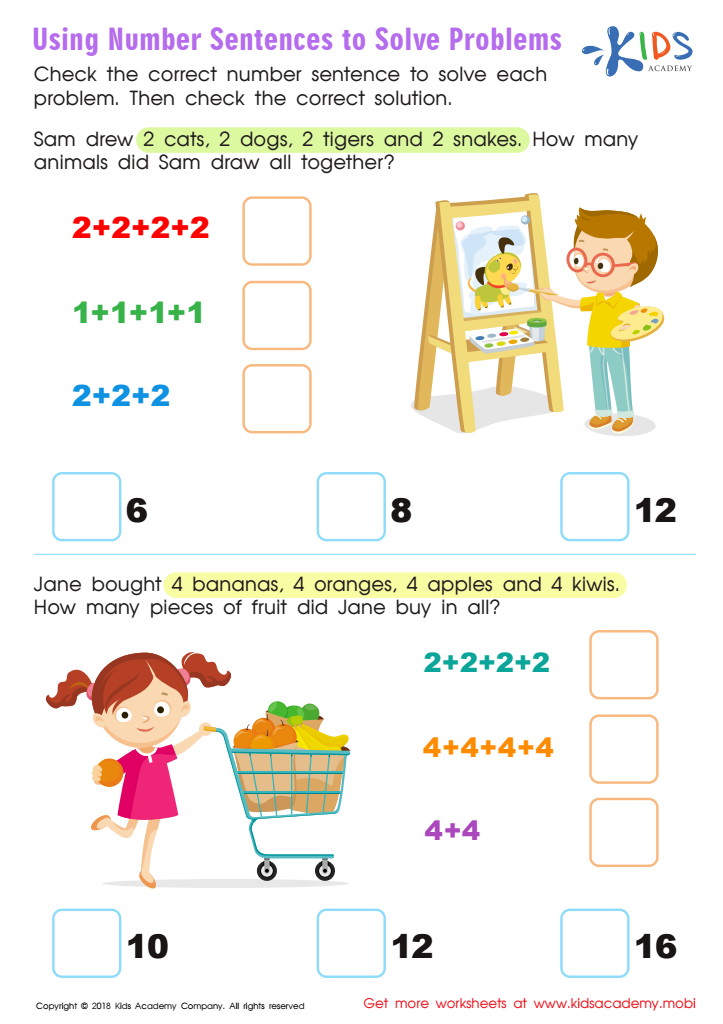

Using Number Sentences to Solve Problems Worksheet
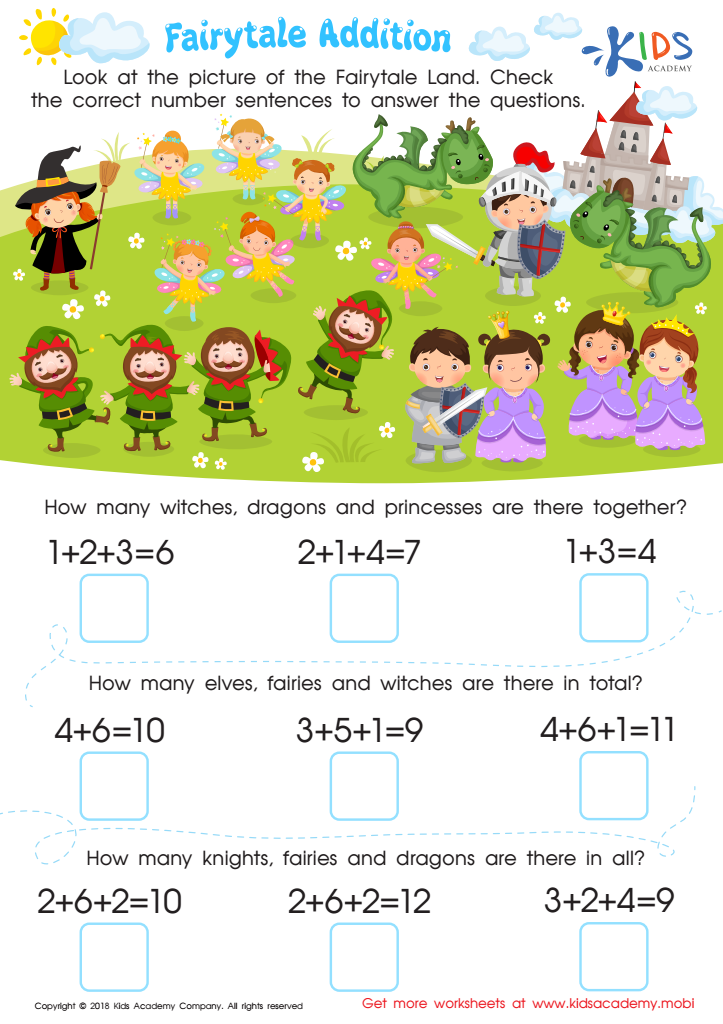

Fairytale Addition Worksheet
Exploring the Benefits of Easy Worksheets on Two-Step Word Problems for Young Learners
In the formative years of early childhood education, setting a strong foundation in basic math concepts through engaging and age-appropriate methods is crucial. For children aged 3-5 years, easy worksheets on two-step word problems offer a unique blend of learning and fun. These worksheets, especially when crafted as school interactive printables, can significantly enhance early learning experiences, paving the way for academic success and a lifelong love for learning.
Why Focus on Two-Step Word Problems?
Two-step word problems are an excellent tool for young minds as they integrate reading comprehension with mathematical reasoning. At first glance, solving these problems helps children practice basic arithmetic, such as addition and subtraction. However, the benefits extend far beyond simple math skills:
-
Enhanced Problem-Solving Skills: Two-step word problems require children to follow a sequence of operations, which develops their ability to think critically and solve problems methodically. This skill is critical not only in math but in everyday decision-making and logical reasoning.
-
Improved Reading and Comprehension: Since these problems are presented in a word format, children must read and discern the information, which greatly aids in improving their reading skills and comprehension. Understanding the context and extracting key details are crucial skills in all subjects.
-
Introduction to Multistep Thinking: Early exposure to two-step problems prepares children for more complex mathematical concepts as they advance in their educational journey. It teaches them that some tasks need multiple steps to reach a solution, mirroring real-life situations where solutions are not always straightforward.
The Role of School Interactive Printables
The use of school interactive printables elevates the experience of engaging with two-step word problems. These printables are designed to be visually appealing and child-friendly, which encourages young learners to participate actively in the learning process. Here’s how these resources add value:
-
Engagement: Colorful and interactive elements in the worksheets keep children engaged. This is particularly important for young learners who might otherwise find plain worksheets monotonous.
-
Hands-On Learning: Interactive printables often involve elements that children can manipulate—such as cut-outs, matching cards, or drawing spaces—which enhance fine motor skills and keep the learning experience tactile and interactive.
-
Parent and Teacher Involvement: These printables are easy for educators and parents to guide and participate in. They provide a structured way for adults to introduce mathematical concepts and engage directly with the child’s learning process, fostering a supportive learning environment.
-
Customizable Experience: Many interactive printables are customizable, allowing teachers to adjust the difficulty level or focus according to the child's individual learning pace and interests. This adaptability ensures that all children can benefit from the activity, no matter their starting skill level.
Implementing Easy Worksheets on Two-Step Word Problems
To maximize the effectiveness of these worksheets, it is important for parents and educators to implement them thoughtfully:
-
Progressive Difficulty: Start with very simple problems to build confidence and gradually introduce more complex scenarios to challenge the young learners without overwhelming them.
-
Interactive Sessions: Make the most of the interactive nature of these printables by encouraging children to discuss their thought processes and reasoning as they solve each problem. This dialogue further enhances their verbal skills and allows for immediate feedback and guidance.
-
Incorporate Real-Life Scenarios: Relate the problems on the worksheets to real-life situations that children might encounter, such as sharing snacks or toys. This makes the math more relevant and understandable, showing them the practical application of what they are learning.
-
Consistent Practice: Regular exposure to these worksheets can help solidify the skills being learned. Incorporating these activities into a routine can make learning a habit and something that children look forward to.
Conclusion
In conclusion, easy worksheets on two-step word problems tailored for children aged 3-5 years, especially when designed as school interactive printables, are more than just educational tools. They are gateways to developing critical early math skills, enhancing reading comprehension, and fostering independent problem-solving abilities. By making learning interactive and enjoyable, these resources not only teach important academic skills but also encourage a positive attitude towards education. Such foundational experiences are crucial in shaping young minds for future academic endeavors and real-world challenges.
 Assign to My Students
Assign to My Students




